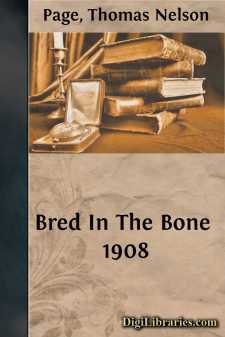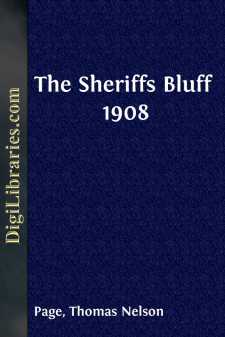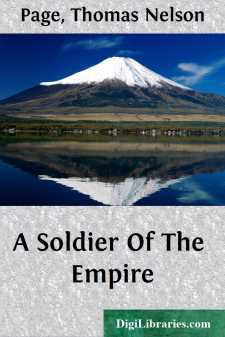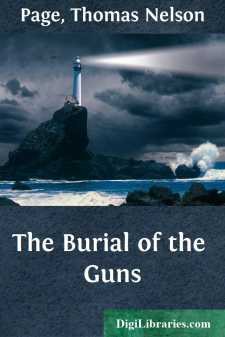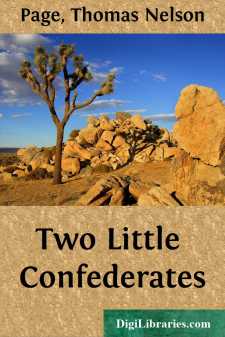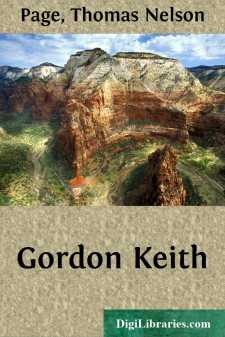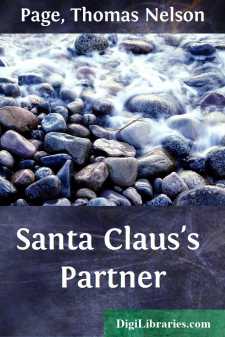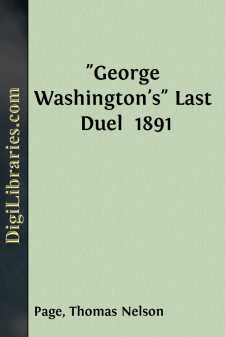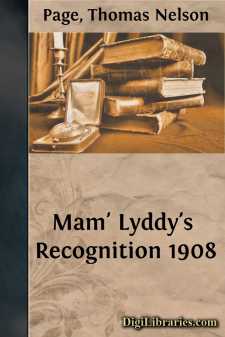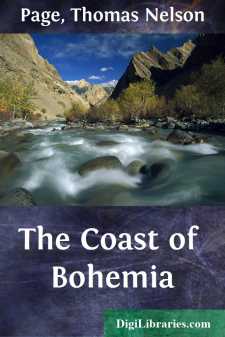Categories
- Antiques & Collectibles 13
- Architecture 36
- Art 48
- Bibles 22
- Biography & Autobiography 813
- Body, Mind & Spirit 142
- Business & Economics 28
- Children's Books 14
- Children's Fiction 11
- Computers 4
- Cooking 94
- Crafts & Hobbies 4
- Drama 346
- Education 46
- Family & Relationships 57
- Fiction 11828
- Games 19
- Gardening 17
- Health & Fitness 34
- History 1377
- House & Home 1
- Humor 147
- Juvenile Fiction 1873
- Juvenile Nonfiction 202
- Language Arts & Disciplines 88
- Law 16
- Literary Collections 686
- Literary Criticism 179
- Mathematics 13
- Medical 41
- Music 40
- Nature 179
- Non-Classifiable 1768
- Performing Arts 7
- Periodicals 1453
- Philosophy 64
- Photography 2
- Poetry 896
- Political Science 203
- Psychology 42
- Reference 154
- Religion 513
- Science 126
- Self-Help 84
- Social Science 81
- Sports & Recreation 34
- Study Aids 3
- Technology & Engineering 59
- Transportation 23
- Travel 463
- True Crime 29
Bred In The Bone 1908
Categories:
Description:
Excerpt
It was the afternoon before the closing day of the spring meeting of the old Jockey Club that so many people know. The next day was to be the greatest ever known on that course; the Spring Meeting was to go out in a blaze of glory. As to this everybody in sight this spring afternoon was agreed; and the motley crowd that a little before sunset stood clustered within the big white-painted gate of the grounds about the Jockey Club race-stables rarely agreed as to anything. From the existence of the Deity to the effect of a blister on a windgall, through the whole range of stable-thought and horse-talk, there was no subject, speaking generally, on which that mongrel population agreed, except, of course, on one thing—the universal desirability of whiskey. On this one subject they all agreed, always.
Yet they were now all of one mind on the fact that the next day was to be the record on that course. In the first place, the prize in the great over-night event, the steeplechase set for the morrow, was the biggest ever offered by the club, and the "cracks" drawn together for the occasion were the best ever collected at a meeting on that course.
Even such noted steeplechasers as Mr. Galloper's Swallow, Colonel Snowden's Hurricane, and Tim Rickett's Carrier Pigeon, which had international reputations, were on hand for it, and had been sent "over the sticks" every morning for a week in hopes of carrying off such a prize.
There was, however, one other reason for the unwonted unanimity. Old Man Robin—"Col-onel-Theodoric-Johnston's-Robin-suh"—said it was to be the biggest day that was ever seen on that track, and in the memory of the oldest stable-boss old Robin had never admitted that any race of the present could be as great, "within a thousand miles," as the races he used to attend "befo' de wah, when hosses ran all de way from Philidelphy to New Orleans." Evil-minded stable-men and boys who had no minds—only evil—laid snares and trapfalls for "Colonel Theodoric Johnston's Robin, of Bull-field, suh," as he loved to style himself, to trip him and inveigle him into admissions that something was as good now as before the war; but they had never succeeded. The gang had followed him to the gate, where he had been going off and on all the afternoon, and were at their mischief now while he was looking somewhat anxiously out up the parched and yellow dusty road.
"Well, I guess freedom 's better 'n befo' d' wah?" hazarded one of his tormentors, a hatchet-faced, yellow stable-boy with a loud, sharp voice. He burst into a strident guffaw.
"Maybe, you does," growled Robin. He edged off, rubbing his ear. "Befo' de wah you 'd be mindin' hawgs—what you ought to be doin' now, stidder losin' races an' spilin' somebody's hosses, mekin' out you kin ride." A shout of approving derision greeted this retort.
Old Robin was a man of note on that circuit. It was the canon of that crowd to boast one's self better than everyone else in everything, but Robin was allowed to be second only to the speaker and the superior of everyone else with a unanimity which had its precedent only after Salamis.
Robin had been head of Colonel Theodoric Johnston's stable before the war, the time on which his mind dwelt with tender memory; and this, with the consideration with which he was treated by stable-owners and racing-gentlemen who shone like luminaries on the far edge of the stable-boys' horizon, and the old man's undoubted knowledge of a horse, made him an authority in that world.
The Bullfield stable had produced some of the greatest horses of the country—horses to which the most ignorant stable-biped knew the great winners of the present traced back their descent or were close akin—and if Colonel Johnston's stable lost anything of prestige, it was not in Robin's telling of it....


